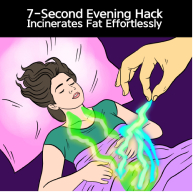Understanding Stress and the Importance of Effective Management
In today’s fast-paced world, stress has become a ubiquitous challenge, impacting mental and physical health, especially for women over 35. Chronic stress can lead to serious health issues including cardiovascular disease, weakened immunity, anxiety, and depression. Therefore, adopting effective stress management techniques is essential for lasting wellness and an improved quality of life.
This comprehensive guide explores proven stress reduction methods—ranging from relaxation and cognitive-behavioral approaches to lifestyle modifications and pharmacological options—that empower women to manage stress effectively and enhance their overall well-being.
Physiological Stress Management Techniques: Relaxation Practices
Relaxation techniques help counteract the body’s stress response by activating the parasympathetic nervous system. Regular practice can decrease cortisol levels, lower blood pressure, and improve mental calmness.
1. Deep Breathing Exercises
Simple yet powerful, deep breathing focuses on slow, abdominal breaths to disengage from stress. Techniques such as inhaling gently through the nose and exhaling through the mouth for 5 minutes can reduce anxiety and promote relaxation.
- Implementation tips: Practice in a quiet space, relax shoulders and face muscles, and be patient with gradual progress.
2. Progressive Muscle Relaxation (PMR)
Developed in the 1920s, PMR involves systematically tensing and relaxing major muscle groups to release physical tension.
- How to practice: Tense muscles for 5–7 seconds, then slowly release; proceed from extremities to head.
- Benefits: Especially effective for reducing anxiety symptoms by up to 60%, improving sleep, and alleviating chronic pain.
3. Guided Imagery (Visualization)
Harnessing the power of mental imagery, this technique invites individuals to imagine peaceful environments like beaches or forests, engaging all senses to foster a meditative state.
- Combined with deep breathing for enhanced effect.
- Useful for managing anticipatory anxiety and elevating mood.
Cognitive-Behavioral and Mindfulness Strategies for Stress
Psychological approaches focus on modifying thought patterns and fostering present-moment awareness to reduce stress reactions.
1. Cognitive Behavioral Therapy (CBT) for Stress
CBT helps identify and reframe negative or distorted thoughts (cognitive distortions) that fuel stress and anxiety.
- Core techniques: Cognitive restructuring, thought records, and behavioral activation.
- Effectiveness: Well-supported by research, CBT reduces emotional distress and improves coping.
2. Mindfulness Meditation for Stress
Mindfulness-Based Stress Reduction (MBSR) is an 8-week structured program emphasizing nonjudgmental awareness of the present moment.
- Key practices: Focus mindfulness (attention on breath or body), loving-kindness meditation to cultivate self-compassion.
- Benefits: Lower cortisol levels, improved emotional regulation, reduced burnout (particularly in healthcare professionals).
3. Integration of CBT and Mindfulness
Modern interventions increasingly combine mindfulness with CBT techniques to enhance distress tolerance and relapse prevention in anxiety and stress-related disorders.
Lifestyle Changes for Stress Management
Incorporating healthy lifestyle habits is fundamental for sustainable stress reduction, enhancing physical, mental, and emotional resilience.
1. Physical Activity
Regular exercise is a potent stress reliever:
- Mechanisms: Releases endorphins, regulates cortisol, and improves sleep quality.
- Recommended activities: Aerobic exercises (walking, cycling), strength training, and mind-body practices like yoga.
- Tips: Start with enjoyable, manageable activities and aim for consistency.
2. Nutrition
Diet plays a crucial role in mental health and stress:
- Supportive foods: Omega-3 fatty acids, magnesium-rich foods, and tryptophan-containing items that promote relaxation.
- Avoid: Excess caffeine and stimulants that can exacerbate anxiety.
Clinical trials, such as the SMILES Study, highlight that nutritional interventions can effectively support depression management.
3. Sleep Hygiene
Quality sleep is vital for stress recovery. Healthy sleep habits reduce stress hormone levels and enhance cognitive function.
- Strategies: Balanced exposure to natural light, consistent sleep schedules, and creating a restful environment.
4. Exposure to Nature
Time spent in green spaces lowers cortisol by approximately 15.8% within minutes and improves mood.
- Forest bathing (Shinrin-yoku): Mindful immersion in nature demonstrated significant stress reduction.
- Dose recommendation: 20–30 minutes in nature 2–3 times per week for optimal benefits.
Pharmacological Treatments and Herbal Remedies
For some individuals, medication may be necessary alongside behavioral methods.
1. Common Pharmacological Approaches
- SSRIs and SNRIs: First-line medications for generalized anxiety and related disorders.
- Benzodiazepines: Effective short-term for acute anxiety but limited by dependency risks.
Emerging strategies explore memory reconsolidation and psychedelic-assisted therapies for treatment-resistant cases.
2. Herbal Treatments
Certain botanicals like lemon balm have demonstrated anxiolytic effects through modulation of neurotransmitters and the HPA axis with favorable safety profiles.
- Note: Herbal remedies require professional guidance to avoid interactions and contraindications.
Personalized Stress Management: Creating Your Plan
Effective stress management is highly individual. Consider the following steps:
- Assess personal stressors and responses.
- Experiment with multiple techniques to find what fits your lifestyle and preferences.
- Practice chosen methods consistently—regular practice builds resilience.
- Integrate lifestyle changes such as exercise, nutrition, and sleep optimization.
- Seek professional support when necessary, including therapy or medication.
Remember, combining relaxation, cognitive-behavioral methods, lifestyle adjustments, and, when appropriate, pharmacology, yields the best long-term outcomes.
Frequently Asked Questions (FAQs)
Start with simple relaxation practices like deep breathing or progressive muscle relaxation. Gradually incorporate mindfulness meditation and lifestyle changes such as regular exercise and healthy eating.
Benefits often emerge after consistent practice over several weeks, with structured programs like MBSR lasting eight weeks showing significant improvements.
Yes, CBT is clinically proven to reduce stress by reframing negative thought patterns and promoting constructive coping strategies.
Regular physical activity, balanced nutrition rich in omega-3s and magnesium, quality sleep, and regular exposure to nature stand out as impactful changes.
If stress and anxiety significantly impair daily functioning and do not improve with behavioral methods, consulting a healthcare provider about medication options is advisable.
Conclusion
Managing stress effectively requires a multi-faceted approach incorporating physiological relaxation techniques, cognitive-behavioral strategies, lifestyle modifications, and, when needed, pharmacological interventions. For women over 35 seeking lasting wellness, integrating these evidence-based techniques can substantially improve mental health, resilience, and quality of life.
Begin your journey today by choosing forms of stress management that resonate with your unique needs, allowing you to foster a calmer, healthier, and more balanced life.







